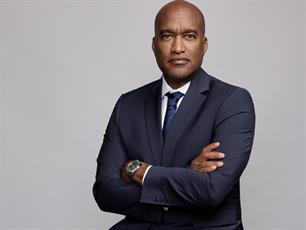Aarti Shah 12 Nov 2013 // 12:25AM GMT
MIAMI — When it comes to evolving service offerings, the big task facing independent PR firms is competing head-on against other marketing shops for content work and monetizing the collection and analysis of data, argued panelists across two sessions at the Independent Public Relations Firms’ Forum.
“It’s really about raising the level of client you’re dealing with,” said Chaim Haas, chief innovation officer at US-based Kaplow, during the “Content: From Concept to Creative Product” session, adding that his firm is working more closely with CMOs, rather than CCOs, because they often have deeper pockets and a greater appetite for big ideas.
For instance, Kaplow worked with long-time client Skype on the “Skype Around the World” video.
Andreas Fischer-Appelt, founder and managing director of German-based fischerAppelt, says his firm aspires to garner 50% of revenues from marketing. Yet, when it comes to hiring digital hotshots, the industry grapples with the perception that PR is “boring,” so in many cases, has to acquire firms to bring in the right digital talent.
Jonas Sevenius, PR strategist at Sweden-based Jung Relations, argues, independents have an advantage in forging partnerships across disciplines to bolster capabilities. Even so, he cautions the hype around content has resulted in clients putting too much trust in content.
Clare Parsons, co-founder and chair at UK-based Lansons Communications, pointed out her firm has found considerable demand for content generation in crisis and internal communications. And ultimately, the key is gaining access to the “widest range of budgets we can get and talk to [various players] in a way we feel comfortable.”
Monetizing Big Data
“Algorithms are fantastic, but we’re not very good at investing in primary research,” says Fraser Hardie, senior partner at UK-based Blue Rubicon. “Big data is not the silver bullet. It’s a tidal wave of data - if we can’t analyse it and make sense of it.”
W2O president Bob Pearson added to win client buy-in for big data initiatives the standard must be “does it make our counselors smarter? If it’s just gathering a lot of junk then we’re out.”
Salvador da Cunha, president of Portuguese-based Lift Group, says his firm acquired a company to develop a proprietary tool. Meanwhile, Pearson added, while building is “a hard thing to do,” firms must take the long-view on the ultimate pay-off.
“We don’t see ourselves as software developers,” countered Hardie. “We want to be quite platform agnostic and move between platforms. Because none of them are perfect.”
Clients are demanding more sophisticated measurement that moves beyond vanity metrics, yet the poor business climate means they unwilling to pay a premium for this, says Cunha.
“There’s too much competition for the marketing dollar today to not know which [key performance metric] is going to matter the most,” pointed out Tom Lindell, managing director of US-based Exponent PR.
The next big challenge on the big data front will be standardizing metrics. In the meantime, the panel maintained independent firms have the flexibility to invest time and resources into cracking analytics -- and are not threatened by the newly-merged Publicis-Omnicom flexing its muscles in this area.
“I like them getting bigger and bigger,” Hardie says. “Our advantage as independents is being able to take a long view. If we don’t take that advantage and use it back on the networks then we’re crazy.”


































.jpg)






.tmb-135x100.png)










